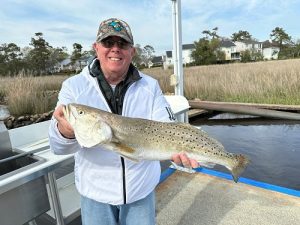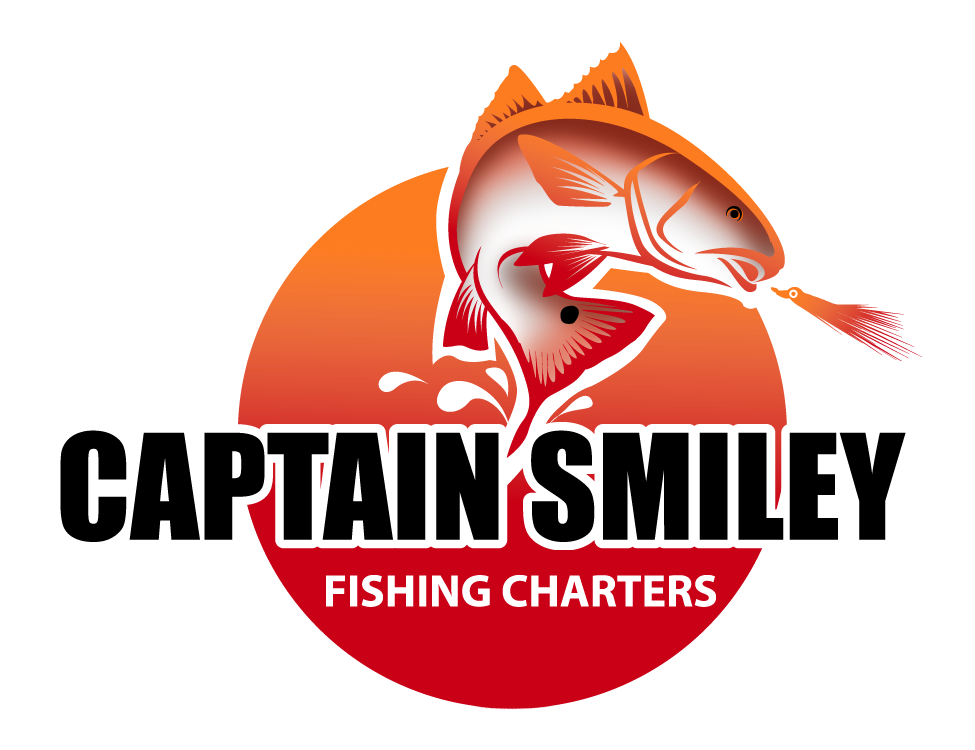 Best Ways For Fishing After Rain
Best Ways For Fishing After Rain
Is saltwater fishing after rain good or bad for you? This is a very common question, and the answer is maybe. Before a storm, it is best to go fishing. Fish can detect changes in barometric conditions and try to eat as much as possible.
This is because most fish will hunker down and wait out the storm. It takes more energy to combat the waves and currents that are created by a storm when the water becomes rougher. Fish will seek out places that are less exposed to the elements and use less energy to remain safe.
Fish may become more active after a storm. Fish may leave their shelter to hunt for food. The fish may have difficulty finding food if there is rough water or higher turbidity levels in the water (mud, silt, and sand). The waves will be higher in deeper water but it wouldn’t be too muddy.
Fishing after rain is a good idea if you target a specific fish species. Species with a lot of energy must keep eating to maintain their speed. Mackerels are a good example. Tarpons, too, are high-energy fish. Both fish are great targets after rain. Try snook, black drums, bluefish, and speckled trout if you’re fishing near shore. Even flounder are more active, looking for the smaller creatures that rougher waters have displaced.
If you’re fishing in Myrtle Beach, look for structures such as oil rigs or wrecks. You can also fish along the shelf. These are the areas where baitfish will move to during rougher water. After the storm has passed, predatory fish such as Tarpon, Cobia and Yellowtails, Tunas, Mackerel and Sharks will also head to these areas to feed on the baitfish.
You can use chum to troll for larger fish before the storm. They’ll be hungry and on the prowl. Storms can affect big fish in a similar way to a boat. Stormwater is violent and can damage their air bladders. The fish will feed heavily, and then wait for calmer water. They will not be around during the storm unless there is a crisis. When the water starts to calm down after the storm and the fish are no longer in danger, they will come out and hunt smaller fish and baitfish.
The temperature of the water can also affect how active the fish are. You may choose to fish deeper water if the weather is cold. The temperature will be banded in layers, and the fish will select the layer that best suits their needs. Some anglers use fish finders to locate fish stratifying before or after storms.
Fishing after Rain
Animals all over the world are used to rain. Those that survive rainstorms have tools built in to help them find food. The behavior of fish after rain depends on the storm’s length and severity. Not much will likely happen if there’s a shower in the afternoon. If there’s a prolonged rainstorm, the fish will be hungry and need food.
When the water is murky, fish are more likely to be slow and take whatever food they can find, especially smaller fish. After a long rainstorm, rivers can pump sediment into the coastal waters. The turbidity from this episode can last weeks and stain even deeper water.
After the rain, fishing is a risky adventure that requires careful planning. Water can be a lot faster near places where rivers meet the ocean and the waves can be larger than usual. After the storm has passed, you can expect showers and wind to continue.
 The Pros of Fishing after a Storm
The Pros of Fishing after a Storm
The fish are still hungry, but they may be having a hard time finding food. It is a good idea to use either stinky or chum bait. The best bait is one that leaves a blood or oil trail. Bait fishing is usually the best choice in water that has been stained. Trolling becomes more difficult as visual hunters have difficulty spotting lures.
Fish will often be found on the leeward sides of objects. Fish will hide behind objects like rocks to escape stronger waves and currents. Find the current, and then fish the side of an object that is following the current. Be patient and use bait instead of lures.
You should know where these are. The calmer junctions are where deep water meets shallow shelves, or ocean water stops river flow. The fish will concentrate on the junction where all the smaller food is gathered. Those fish who have survived storms will eat the crustaceans and crabs that wash into deeper water. You can use top-water flies or bait. If the water is clear, you may also want to consider lures.
What are the Cons of Fishing after a Rainfall?
Rain can make Myrtle Beach fishing more difficult because it changes the fish’s behavior and environment. Each can be overcome. You can overcome each if you fish in areas with calmer water and currents, or if you use lures that will attract fish in murky water.
If you’re prone to motion sickness, the Ocean will be rougher. You may feel the effects of seasickness in the heavy chop that follows rain, even if you do not succumb.
The heavier swells increase the risk for small boats.
Fishing before Rain
Before a storm, fishing is a good idea. The fish can sense the barometric change and they will prepare themselves for several days without feeding. The fish will become more active, making fishing easier. If the water is clear, use lures, baits or jigs. Before a storm, most fish species are more likely to take a chance on food.
During a storm, fish must remain in one spot or a limited area for several days. Only if they’re very hungry will they venture out. You will catch fish that are on the move or hunting if you go fishing before a thunderstorm. It is a good idea to use stinky baits.
Fishing in Rain
It can be cold and miserable to fish in the rain. Wearing layers to keep warm and wick away moisture will help you avoid this unpleasant experience. The fish will be already hunkered down when the rain starts. Increased barometric pressure warns them that rain is coming. Finishing in the deepest holes and on the leeward side of structures is best.
Never go fishing alone in the rain. Lightning can strike at any time. If this happens, leave the water immediately and return home. Be aware of any changes to the ocean. It is dangerous if the water becomes rough.
What is the impact of rain on fishing behavior?
Fish that feed on the surface, like sea bass or cod, may begin to feed as rain falls. Fish will seek shelter as the rain increases, the water becomes muddy, and the wave or current patterns become more intense. You should fish the sheltered sides of structures both during and after rain. This is also a great tip for fishing during the tide change. As the tide changes from inflowing to outgoing, fish will move to one side or another of a structure.
What are the advantages and disadvantages of fishing in the rain?
Cons of Fishing in the Rain
- You are most likely to be wet if the weather is bad.
- You may feel seasick if the water is rougher.
- Fishing is dangerous if there’s lightning or if the waters are too rough.
- The visibility is reduced, and techniques such as sight-fishing may be worse.
The Pros of Rainy Day Fishing
- Fish are likely still active if the water is clear or there is no current.
- You can easily find fish behind structures where the current is lessened.
- Some lures work better with stinky baits than others.
It takes a lot to fish before, during or after a storm. If you don’t know how to fish in a storm, it can be a miserable experience. The storm can cause lightning, which can be fatal, and rough water. It can be miserable if you don’t prepare for the wind, rain, and water. You should also know how fish react in storms to be able to target them. Your tactics must be precise if you want to fish in a storm. Otherwise, just like the fish that are searching for food in murky water, you will be fishing blind.
Call Captain Smiley Fishing Charters LLC. now if you’re interested in going fishing in Myrtle Beach.
Like our Facebook page for more great info about fishing services.
Captain Smiley Fishing Charters LLC.
4495 Baker St
Little River, SC 29566
(843) 361-7445
https://www.captainsmileyfishingcharters.com
catch@captainsmileyfishingcharters.com

